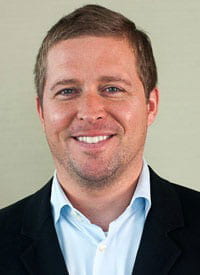International Archaeology Day, October 21, 2023
International Archaeology Day (IAD) is a celebration of archaeology and its contributions to society. Every October the AIA and archaeological organizations around the world present archaeological programs and activities for people of all ages and interests. Whether it is a family-friendly archaeology fair, a guided tour of a local archaeological site, a simulated dig, or a presentation from a visiting archaeologist, the interactive, hands-on IAD programs provide a chance to uncover the past and experience the thrill of discovery. Learn more!
Calendar of Events
Milwaukee International Archaeology Day Event
Thursday, October 19, 2023, 4:30 pm
Sinclair Bell, Professor, Art History and Presidential Teaching Professor, Northern Illinois University
“Race, Racism, and Representation in Ancient Italy: Aethiopians in the Visual Arts of the Roman Empire
Lubar Hall, Room N140, 3202 North Maryland Ave., UW-Milwaukee Campus
The visual and material culture of the Roman Empire provides an abundant record of encounters with or simply imaginings of foreign peoples. These images render visible complex formulations of ethnicity, social hierarchies, and power. This lecture surveys the ways in which imperial artists represented the peoples whom the Romans referred to as Aethiopians or Nubians (i.e., “Black” Africans) in a variety of visual media. The lecture also considers how and why these works have been (mis)interpreted or sometimes altogether ignored by ancient art historians, and proposes new ways of integrating them into future, critical histories of Roman art.
 Prof. Sinclair Bell is Professor of Art History and Presidential Teaching Professor at Northern Illinois University, where he teaches courses on Greek, Etruscan, and Roman art and architecture. He has excavated at sites in Italy and Tunisia and worked as a curatorial assistant at museums in Germany and Greece. He studied Classical Art & Archaeology at the universities of Oxford, Edinburgh, and Cologne, receiving his PhD in Classics in 2004. Sinclair’s research is broadly concerned with Etruscan and Roman material culture and art, with special interests in sport and spectacle and freed slaves and foreigners. His current book project, Aethiopians in Roman Art and Society: Visualizing Difference in a Multi-ethnic Empire, is the subject of his lecture tonight.
Prof. Sinclair Bell is Professor of Art History and Presidential Teaching Professor at Northern Illinois University, where he teaches courses on Greek, Etruscan, and Roman art and architecture. He has excavated at sites in Italy and Tunisia and worked as a curatorial assistant at museums in Germany and Greece. He studied Classical Art & Archaeology at the universities of Oxford, Edinburgh, and Cologne, receiving his PhD in Classics in 2004. Sinclair’s research is broadly concerned with Etruscan and Roman material culture and art, with special interests in sport and spectacle and freed slaves and foreigners. His current book project, Aethiopians in Roman Art and Society: Visualizing Difference in a Multi-ethnic Empire, is the subject of his lecture tonight.
For more about Dr. Bell see:
https://www.niu.edu/art/about/faculty-staff/sinclair-bell.shtml
https://niu.academia.edu/SinclairBell
